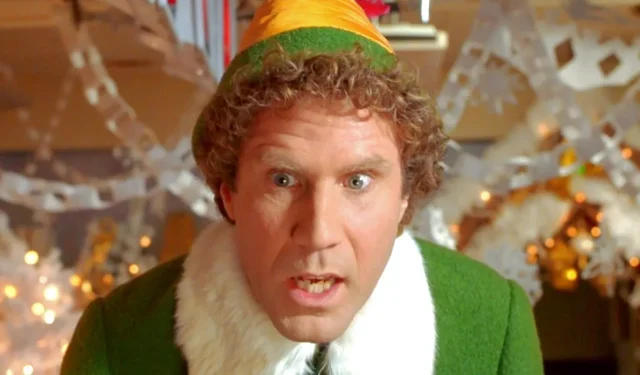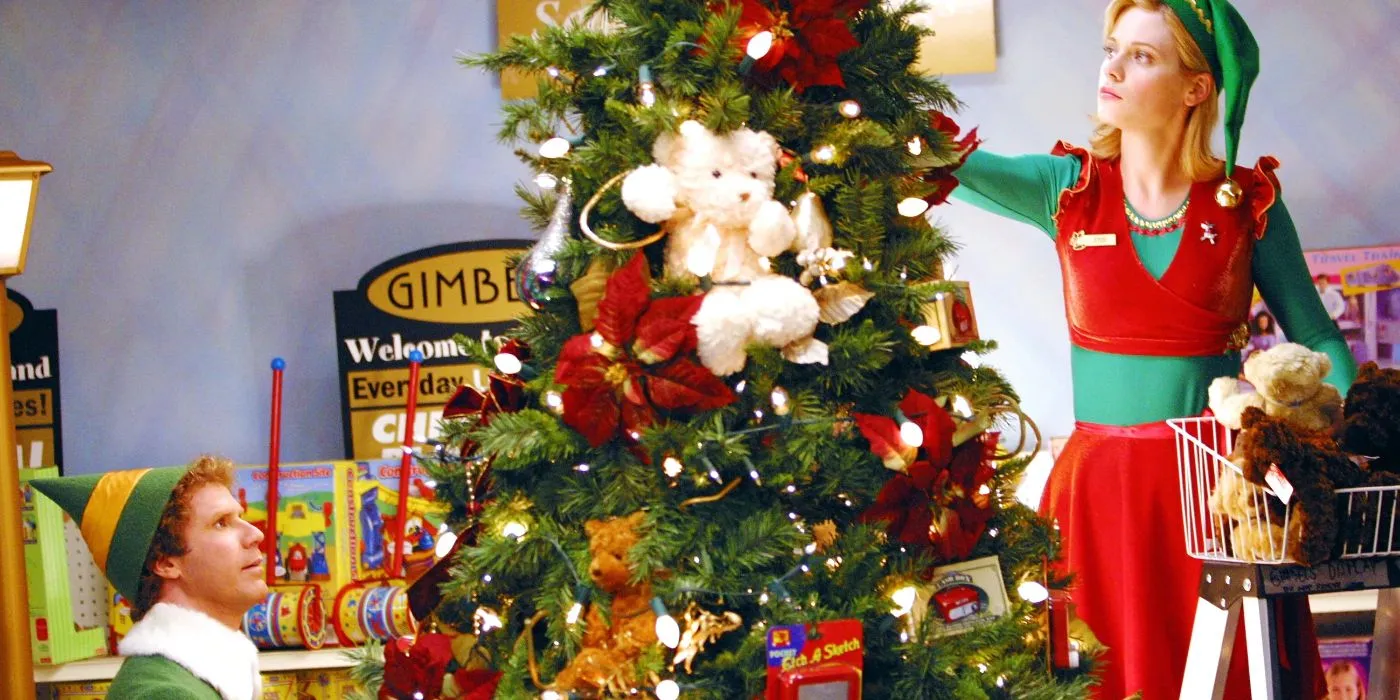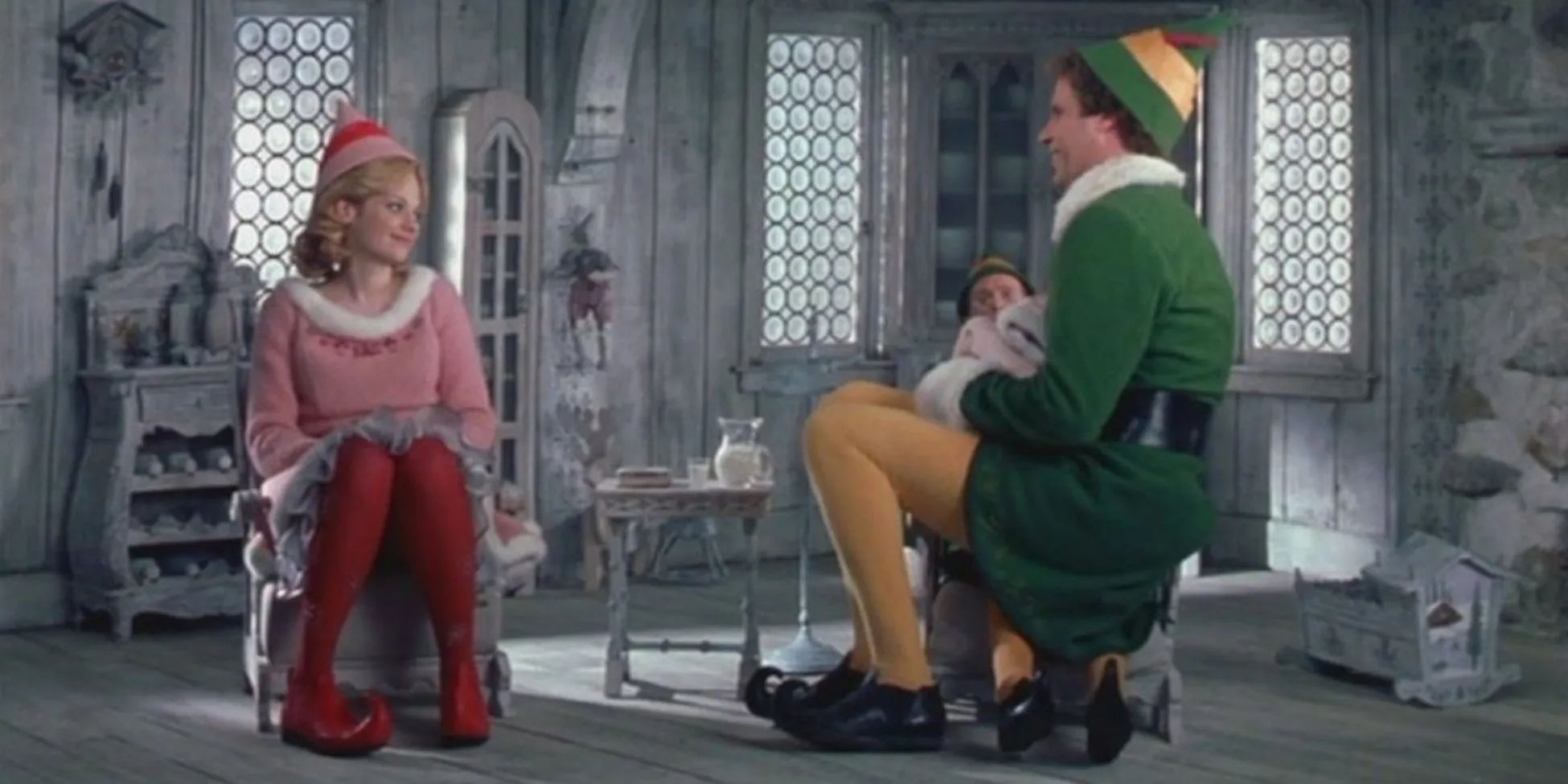
Elf has become a quintessential holiday film, beloved for its charm and humor, yet there’s one element that may not resonate as well today as it did upon its release. The premise of a grown man prancing around New York City dressed as an elf seems improbable — perhaps even unsettling. However, Jon Favreau’s genuine direction combined with Will Ferrell’s enthusiastic portrayal transformed Elf into a beloved classic when it graced theaters in 2003.
Even without a sequel, Elf manages to deliver a satisfying narrative. The emotional reunion between Buddy and his estranged father injects warmth into the story, superbly portrayed by Ferrell and James Caan. The film’s aesthetic, reminiscent of Rankin/Bass animations, provides a nostalgic and cozy portrayal of the North Pole, expertly contrasting Buddy’s subsequent adventures in New York City. With a plethora of successful comedic moments and heartfelt scenes, Elf offers a robust viewing experience. Yet, there remains one noteworthy aspect that has not aged well, diminishing its overall perfection.
The Problematic Romantic Plot
Inherent Creepiness of the Romance

While Buddy’s journey of reconnecting with his father, bonding with his brother, and experiencing life beyond the whimsy of the North Pole unfolds beautifully, the romance between Buddy and Jovie — portrayed by Zooey Deschanel — introduces a disconcerting note. Touted as a sweet love story highlighting the innocence of a man-child, the actual execution feels quite different. The initial meeting between Buddy and Jovie occurs under rather questionable circumstances as he enters the bathroom while she showers.
From there, Buddy’s childlike demeanor often undermines romantic interactions, leading to an uncomfortable dynamic that raises eyebrows. Watching a character who embodies a child’s emotional maturity engage in a romantic relationship can be unsettling, bringing to mind parallels with earlier films like Big, which faced similar criticisms.
Dark Subtext in the Film’s Conclusion
Implications of Buddy & Jovie’s Ending

The concluding scenes of Elf depict Buddy and Jovie moving to the North Pole, suggesting a blissful end to their love story. However, this seemingly idyllic resolution carries a grim undertone. Jovie’s seamless transition into elf society raises unsettling questions about her ties to her own world. The lack of any mention of friends or family left behind hints at a deeper sadness regarding her character, as it suggests she may not have had significant connections or responsibilities that tethered her to the real world.
This nuance presents a surprising layer to the film’s conclusion, challenging the perception of what constitutes a happy ending and offering a more complex interpretation of Jovie’s character and choices.




Leave a Reply